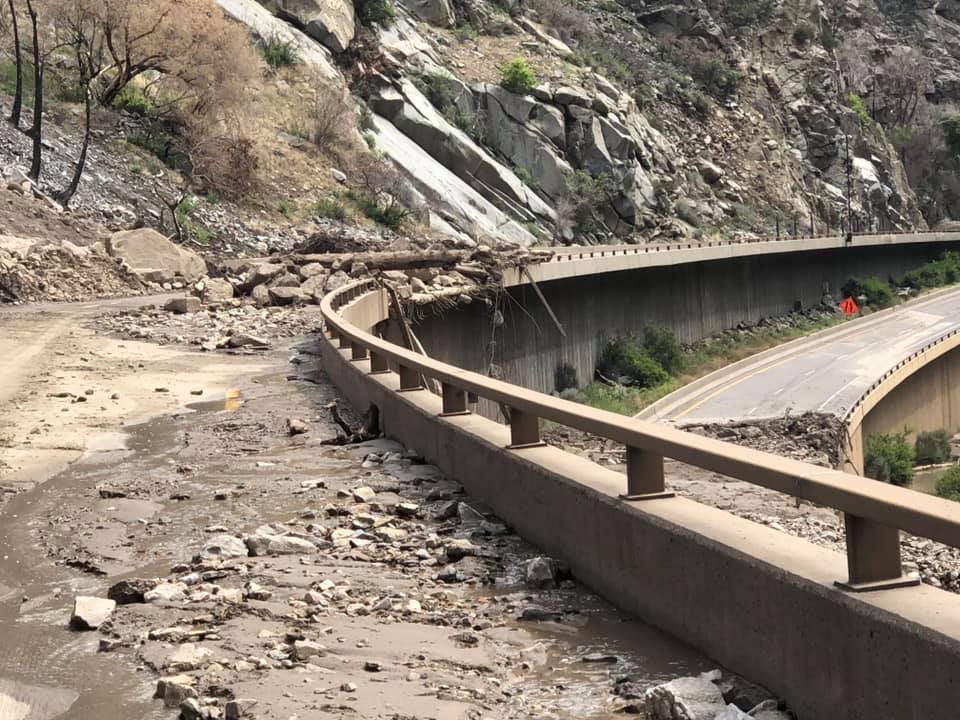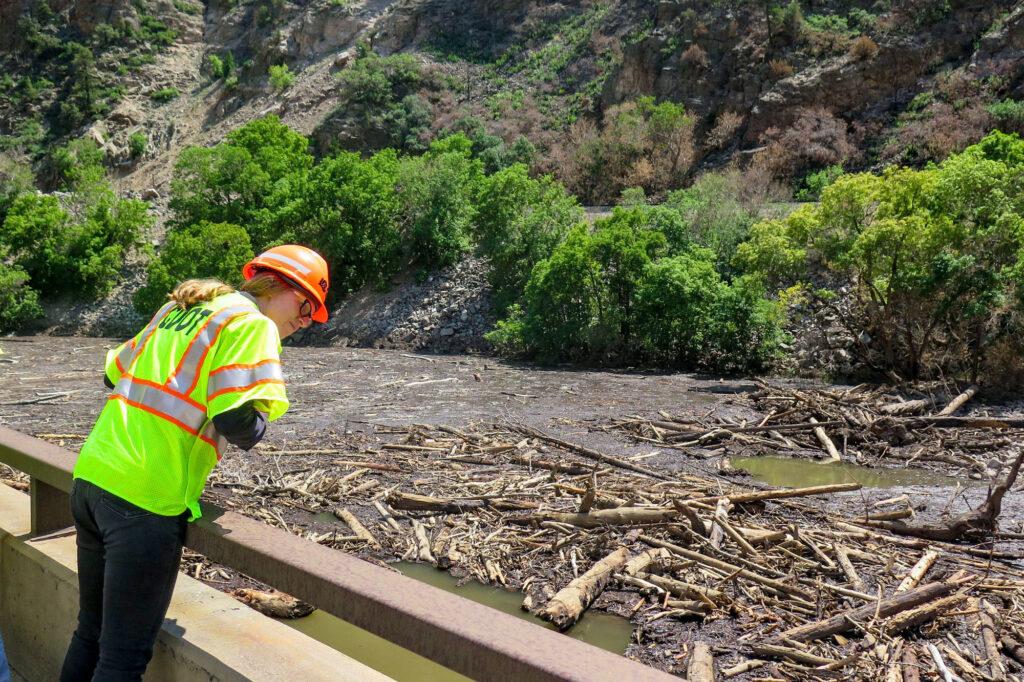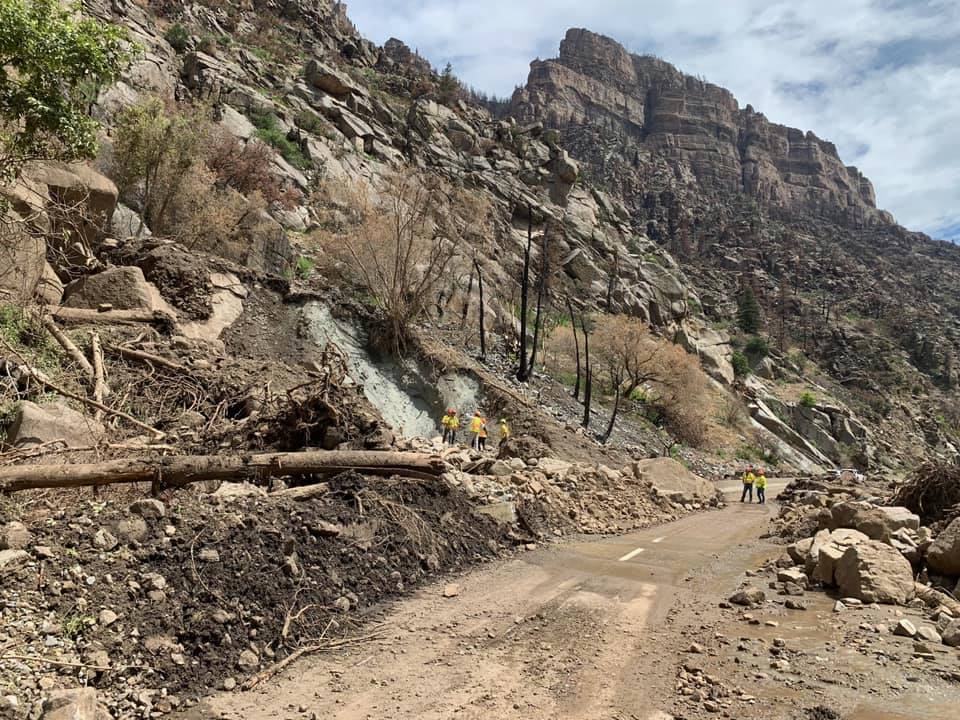
Interstate 70 through Glenwood Canyon will remain completely closed to travelers for at least a few more days, and closures stretching into the weeks are more likely.
“We don’t yet know the full extent of the damage,” said Gov. Jared Polis, who briefed reporters Monday afternoon on the mudslides and debris flows that trapped more than a hundred motorists last week and disrupted vacations and commerce on the crucial east-west corridor.
The timeline will tighten up as Colorado Department of Transportation crews assess the damage and begin repairs, Polis said. Only two lanes — one in each direction — will reopen initially, he said, with a full reopening targeted by ski season.
Rain could complicate repairs and recovery. About 4 inches of rain has fallen in the area in the last five days, Polis said, nearly double the average for the entire month of July. And Colorado’s monsoon season isn’t over yet.
“We have to watch this closely for the next few weeks, month. It could get worse,” he said.
The state of Colorado will issue a state disaster declaration, Polis said, and will also request a federal disaster declaration, which could bring federal assistance for cleaning up the mudslide.

Early surveys by CDOT crews revealed “immense debris” damaged parts of the road and a viaduct wall, said the agency’s Executive Director Shoshana Lew. Elsewhere, the debris shifted the flow of the Colorado River such that its waters have covered parts of the lower, east-bound road deck and are damaging a retaining wall.
At the canyon’s bottom, crews found quartzite, granite and limestone — three distinct types of minerals from different parts of the canyon walls.
“The fact that these samples are all coming together in the flow pattern just shows you how quickly the debris is moving,” she said.
The canyon’s 1,300 foot-high walls and the tight turns of the rushing Colorado River made building the interstate an engineering feat in the 1980s and early 1990s. But wildfire, floods and other weather events made more intense by climate change are testing the government’s ability to keep it open.
“Places like Glenwood Canyon are inherently fragile because of the nature of why they’re special,” Lew said. “And respecting the landscape as we help it heal is something that I think is on all of our minds as we deal with these very, very, very deeply jarring and impactful events.”

Ultimately, plants that help hold soil and rocks in place should naturally take hold over the next few years. There have been limited efforts to seed the burn zone, but the canyon’s steep walls make that impossible in some areas.
Otherwise, there’s little to do but wait for that process to continue, Paul Santi, a professor of geology and geological engineering at the School of Mines, told Colorado Matters last month. In other areas, debris can be redirected to less-damaging areas — and CDOT did that above the Hanging Lake tunnel. But the lack of space in many other places in the canyon makes that difficult, he said.
“There's no real magic bullet here,” he said.








